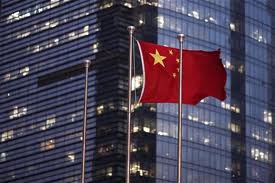China Happy Hour (http://www.ChinaHappyHour.com) Will Bring Together a Who’s Who of the Chinese and South Asian Business Communities, for an Evening of Networking and Cocktails in New York City, June 26

Reuters/Carlos Barria
(June 18, 2012, New York) Three decades ago, China was a rural economy with barely any exports. Last year, China succeeded Japan as the world’s second largest economy. Many predict it will be larger than the United States by 2020.
Ann Lee will provide an unvarnished assessment of China’s political economy and governance structure that can be applied to other governments regardless of ideology. Her message to Westerners: stop whining about the competition and stop treating China as the enemy. Rather than demonizing China, a more productive use of time and resources is to learn from this rising power in order to maximize the idle talent of millions of people.
Ann Lee is an adjunct professor at New York University, teaching finance and economics, and a senior fellow at the progressive think tank organization DEMOS.
She was also a visiting graduate economics professor at Beijing University and an adjunct finance professor at the Lubin School of Business at Pace University. Before that, she was an investment banker and partner at multi-billion dollar hedge fund firms.
Born in China and raised in the States, she has the unique perspective of understanding both worlds. Ms. Lee was educated at UC Berkeley, Princeton’s Woodrow Wilson School of International Affairs, and Harvard Business School.
She has served as a consultant to the Committee of Economic Development and the McKinsey Global Institute, and her articles have appeared in the Wall Street Journal, Financial Times, Forbes, Worth, and many other publications.
Ann Lee, author of What the U.S. Can Learn From China, and Senior Fellow with DEMOS, will provide an unvarnished assessment of China’s political economy and governance structure that can be applied to other governments regardless of ideology. Her message to Westerners: stop whining about the competition and stop treating China as the enemy. Rather than demonizing China, a more productive use of time and resources is to learn from this rising power in order to maximize the idle talent of millions of people.
Bringing popular speakers such as Ms. Lee makes Golden Networking’s China Happy Hour (http://www.Chinahappyhour.com), networking receptions so popular among executives and professionals with a focus on China and South Asia.
China Happy Hour will be held next Tuesday 26; these receptions have been known to attract executives and professionals not only from China but also from South Korea, Singapore, Malaysia, Indonesia, Japan, and India, among other nationalities
China Happy Hour New York City is produced by Golden Networking (http://www.goldennetworking.net), the premier networking community for business executives, entrepreneurs and investors. Panelists, speakers and sponsors are invited to contact Golden Networking by sending an email to info@goldennetworking.net.
 With several major mining projects being put on ice this week, talk has quickly turned to whether the Australian mining boom is about to go bust.
With several major mining projects being put on ice this week, talk has quickly turned to whether the Australian mining boom is about to go bust.









